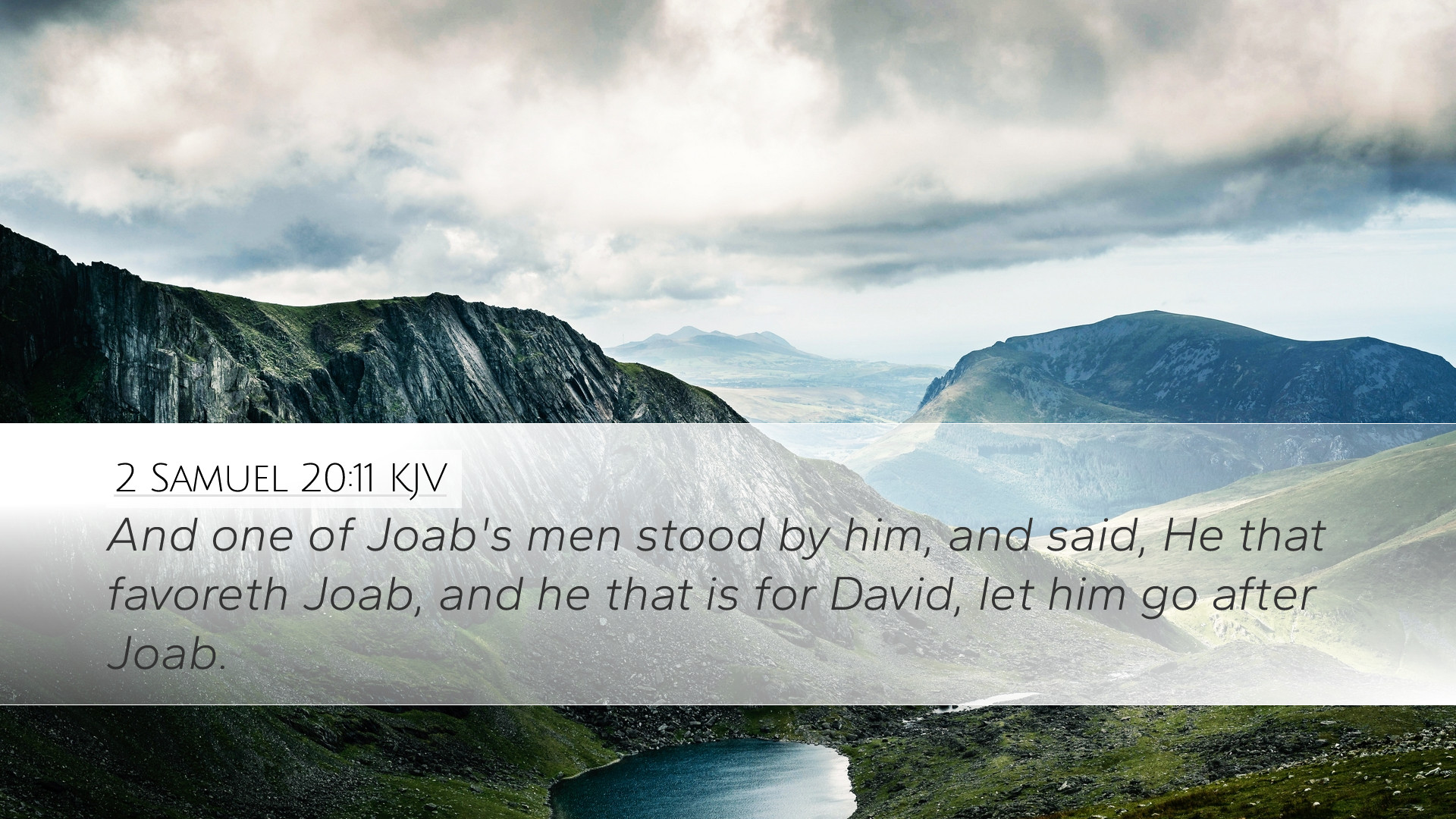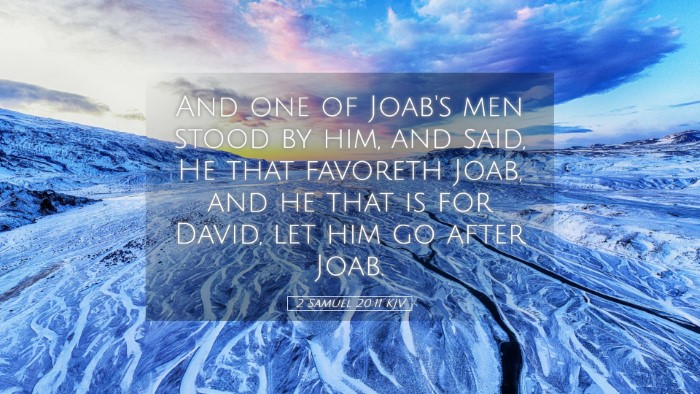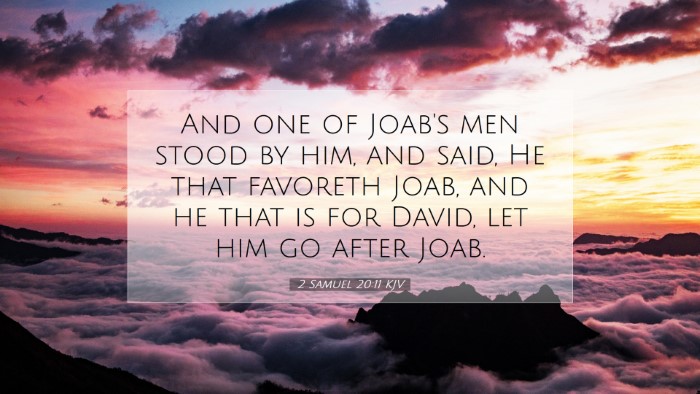Commentary on 2 Samuel 20:11
2 Samuel 20:11 states:
“But one of Joab's young men stood by him and said, ‘Whoever favors Joab, and whoever is for David, let him follow Joab.’”
Introduction
The narrative of 2 Samuel 20:11 unfolds during a tumultuous time in the reign of King David, marked by conflict and division. This verse encapsulates a moment of political maneuvering and military allegiance, reflecting the complexities of leadership and loyalty in the divine narrative.
Contextual Background
This verse finds its setting in the aftermath of Absalom's rebellion and the subsequent chaos that followed. The conflict had not only drained Israel’s resources but had also fractured loyalties among the people. Joab, David's military commander, had a reputation for his ruthlessness and cunning, but also for his unwavering loyalty to David.
The Role of Joab
According to Matthew Henry, Joab’s actions reveal a deep-seated understanding of the political landscape. His authority and connection to David meant he had to assert himself to maintain order. Joab’s call for allegiance was not merely a rallying cry; it was a strategic move to consolidate power amidst chaos.
Insights from Albert Barnes
Albert Barnes emphasizes that the phrase "Whoever favors Joab" underscores the polarization within the camp. People were compelled to make decisions based on loyalty, driven by fear of collapse that could accompany divided support for the king. Joab recognized the danger of neutrality and acted to bring swift resolution to the crisis.
Faith and Loyalty
The backdrop of this verse serves as a microcosm of the greater spiritual truths regarding faith and loyalty. The call to follow Joab becomes symbolic of a deeper theological reflection on whom we follow and why. Adam Clarke notes that this reflects not only a plea for military allegiance but resonates with the biblical call for followers of God to choose their alliances wisely.
Divine Leadership
As believers, the choice of whom to follow resonates with the teachings of scripture. When faced with leadership crises, the faithful are reminded of the sovereignty of God. Just as Joab rallied the troops, David ultimately had to rely on divine guidance to navigate the turbulent waters of his reign. With references from Matthew Henry, reliance on God's will emphasizes the importance of moral direction amidst human conflicts.
Theological Implications
2 Samuel 20:11 provides essential insights into the nature of loyalty and divine authority. The verse opens avenues for discussions regarding:
- The Nature of Leadership: Understanding the complexities of leadership choices and the ethical dimensions involved.
- Loyalty vs. Morality: The conflict between personal allegiance to leaders versus a higher moral standard as defined by God’s commandments.
- Human vs. Divine Guidance: The interplay between human decision-making and the need for divine intervention in times of crisis.
Conclusion
In summary, 2 Samuel 20:11 presents a compelling case study for leaders and followers in any generation. Through the lens provided by public domain commentaries, we see a rich tapestry woven with themes of loyalty, struggle, and the recognition of God’s sovereignty in human affairs. The text challenges pastors, students, theologians, and scholars alike to reflect on the nature of their allegiances and the guidance they seek in the face of adversity.
This passage remains relevant as it calls the faithful to examine their own commitments and the leaders they choose to follow, urging unwavering faith in God’s ultimate plan.


